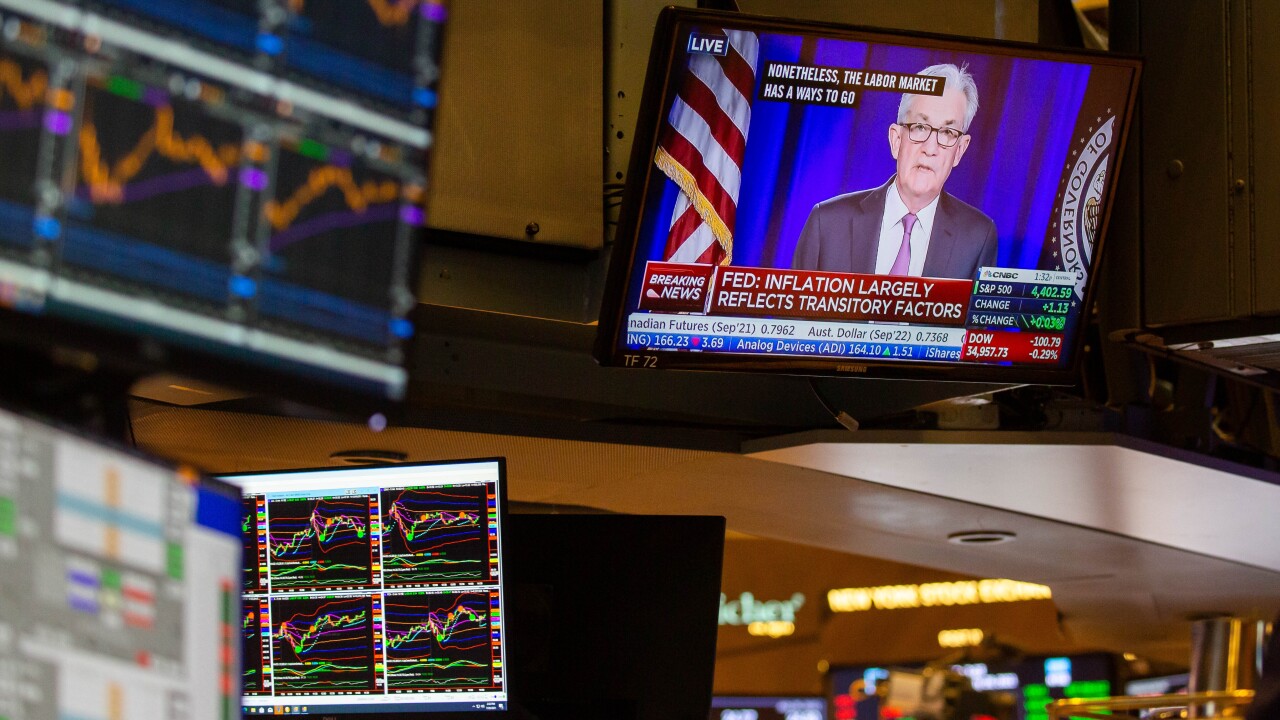The Small Business Administration says it's confident its proposal to nearly triple the maximum size of its popular Express loans would drive significant new volume to the 24-year-old program. After all, it’s been tried once before, and it worked — for a while.
In 2010, Congress approved a one-year boost to Express’ size limit to $1 million from $350,000 as part of the Small Business Jobs Act. Program volume spiked to a record $2.84 billion during the 2011 fiscal year. It dropped to $1.75 billion the following year, after the provision’s sunset. (The federal government’s fiscal year runs from October through September.)

Express volume picked up again mid-decade, as overall volume in the agency’s flagship 7(a) program rose, but it has been trending downward the past four fiscal years. While lenders made nearly 23,000 Express loans in fiscal 2019, dollar volume totaled just $1.74 billion, 39% below the FY 2011 peak.
“We’re seeing that the program is not being utilized as much,” William Manger, the SBA’s associate administrator for the Office of Capital Access, said in a mid-November interview. “We think one of the reasons is the loan cap.”
The SBA’s prescription is to reinstate the $1 million maximum — this time on a permanent basis. The agency
“Even if you were just to account for inflation since the program started, the cap would be well in excess of $500,000,” Manger said. “I don’t know why anyone would want to keep it at $350,000.
Lenders like Express because it lets them use their own forms and credit standards in exchange for a lower federal guarantee of 50%, instead of the 75% backing conventional 7(a) loans typically receive. “It’s more streamlined,” Manger explained. “They get to use more of their own internal requirements when they book a loan through the Express program.”
Under 7(a), which includes Express, the SBA guarantees loans made by private-sector lenders. Banks by far are the most active users of 7(a) and Express programs, but there appears to be wide support among all classes of users for an increased threshold.
“When you’re talking about going up to $1 million, you’re talking about clearing out a lot of administrative burdens,” said Charles Smith, SBA program manager at the $11.5 billion-asset Eastern Bank in Boston. “We would use the program in a greater way to support our small businesses without the additional administrative burdens, especially on lines of credit.”
Likewise, Jim Fliss, national manager of the SBA program at the $145.2 billion-asset KeyBank in Cleveland, called increasing the Express threshold “a tremendous” idea.
“There are benefits to the borrower,” Fliss said. “Those benefits are access to capital, they’re smaller equity injections, longer amortizations, [and] they’re financing change of ownerships or covering a collateral shortfall. … To the extent we can promote that, endorse that, pollinate that across the banking industry, it’s all good. I’m very supportive of that.”
Chris Ledesma, senior vice president of strategic planning with Wells Fargo’s SBA Lending Group, said the San Francisco bank — the nation’s No. 2 7(a) lender — “appreciates the government looking for ways to increase and improve the program.”
“We do a lot of Express lending,” Ledesma said. “It’s an important part of our strategy.”
Small businesses seeking lines of credit would probably see the biggest benefit from an increased threshold, Manger said, echoing Smith of Eastern Bank. According to Manger, Express “is a really great product as a revolver. What I hear from businesses is that they’d like to see [the limit] for the revolving line of credit set at about $750,000. A $1 million threshold would take care of that."
While few if any industry insiders flat out oppose a higher threshold for Express, there are some who argue the proposed $1 million limit would be too high.
“If SBA wants to increase [Express] volume, it shouldn’t increase the limit to $1 million, which will inevitably lead to losses,” said Arne Monson, president and co-founder of Holtmeyer and Monson in Memphis, Tenn., the nation’s largest SBA servicing firm. “A far better stimulus would be to reduce fees.”
Still, Monson said he would support increasing the Express size limit to $500,000 “given the aforementioned strategy of using it as a line of credit. Sometimes, $350,000 is not quite large enough.”
The SBA has major success in recent years making improvements to its lending programs including franchise loans and, especially, 504 loans.
The agency has seen major growth in its 504 loan program since implementing a provision extending the maximum loan term to 25 years from 20 years in April 2018. Lending volume in 504, which is aimed at companies purchasing real estate or big-ticket equipment, increased 4% between fiscal 2018 and fiscal 2019. Through Nov. 22, 504 volume totaled $1.02 billion, up 31% from the same period in fiscal 2019.
That was a change the SBA could make on its own, though. Increasing the Express loan size threshold requires legislation. To date, a Congress distracted by bigger issues has shown little inclination to deal with Express.
Manger, for his part, is doing what he can to attract attention.
“Every opportunity I get to speak" to lawmakers and congressional staff "I reiterate what’s in the president’s budget,” Manger said.





